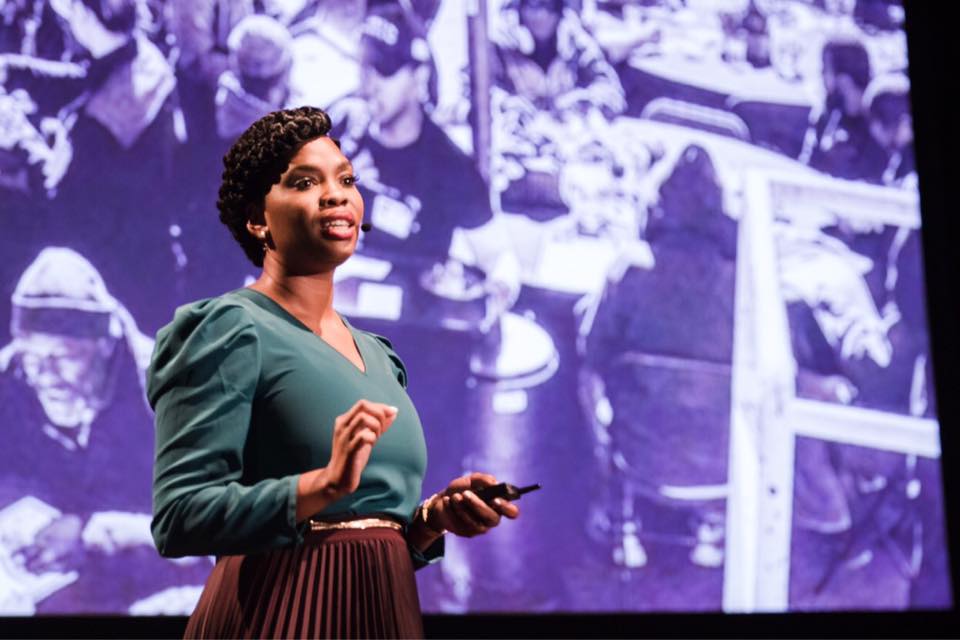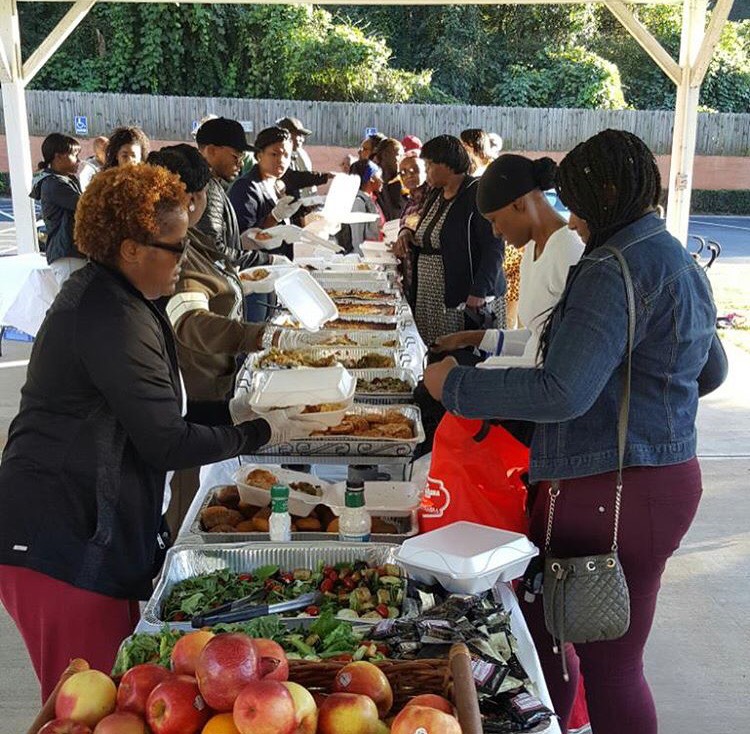Salvaging perfectly good food, feeding the hungry, saving companies money, making bank. It’s a win-win-win-win.
When you hear Jasmine Crowe speak, you are reminded that so many of the truly great innovators and pioneers (and revolutionaries too, for that matter) have been people who simply refuse to accept the unacceptable. To Jasmine, it is unacceptable that tens of millions of Americans go to bed hungry at night while 72 billion pounds of food is wasted—thrown away—every year in America. That she’s managed to make a successful, profitable business out of her tech solution to that hunger and waste is doubly wonderful—a prime example of how a for-profit company can do good, as well.
Women 2.0 got to know Jasmine through her participation as a member of the second cohort of the Techstars Anywhere program, which was mentored by our CEO Kate Brodock, among others.
Can you talk about your experience building a social impact company?
I had years of experience in the nonprofit space before launching Goodr. So I knew when I launched that I wouldn’t be a nonprofit but that I would still make an impact, so it was natural fit. I believe that in business you can do well, by doing good.
[su_pullquote]Every day we’re in business, people are better for it.[/su_pullquote]
From a business standpoint, what were the pros and cons for you? The pros are that you’re doing something good, so that every day we’re in business, people are better for it. We can get buy-in from companies that want to do good and have a network of community support that is unmatched. There is no con for me, I believe that businesses as a force for good is the future, just watch.
Did it impact your ability to profit or your technology build?
No, not at all.
How were your conversations with investors?
Some investors see us as a nonprofit, which we’re not so we have to work on that confusion. Also, they wonder if we can be a billion-dollar company—which we will be, so we have a lot of barriers and preconceived notions to work thruogh.
How did the Techstars program support you building your company?
The mentor network with Techstars was amazing, I met so many great mentos whom I know I will stay in contact with for years to come. I learned a lot throughout the process and made some lifelong friends with some of the other founders. I will always cherish my Techstars experience.
Since you’ve graduated, what important business milestones have you met, and how did you accomplish them?
We increased our MRR after the program, we met with more customers and perfected how we pitch our business to companies and investors.
Tell about using technology to solve this problem you saw. Is a crucial piece of the puzzle?
It’s past time that we used technology for good. We use technology to deliver accurate data to our customers. We can show them just how much food they are keeping out of landfills and the tax benefits dollar for dollar. We also can help them track the food to its destination and provide them with real-time impact reports and so much more. Technology is absolutely a crucial piece of this puzzle.
[su_pullquote]We can show them just how much food they are keeping out of landfills and the tax benefits dollar for dollar.[/su_pullquote]
How did you go about building out the tech side of Goodr?
At first we were looking for a Development Agency. It was very expensive, so I entered pitch competitions to try and raise the money. During that time I met someone that I thought was a good fit as a CTO/Co-Founder, but it didn’t work out, so I hired an agency after all for our first few versions and now we’re looking for a full-time CTO to join the team. It was a journey to getting the deck done, but we’re just getting started.
You’ve said before that “hunger is a question of logistics, not scarcity.”
In the past 50 years the statistics around hunger have not changed much. The reality is that the system is broken, food banks and other organizations have operated on recovering food from these businesses and getting it to the same places like shelters and soup kitchens.
The reality is people are hungry at homes, at work and school, and lack the means to always make it to a soup kitchen or pantry for food. Until we eliminate the transportation barriers that keep people from accessing food, hunger will forever be a prevalent issue. We exist to get food directly to people in need by creating a robust logistical system that gets food to more people, faster.

Jasmine Crowe
You’re a black woman in an industry that has less-than-favorable numbers for people from underrepresented groups. For instance, women receive only 2.2% of all US venture capital funding, and black women receive less than .03%. How does this impact your pathway to building a successful company?
The truth is, it’s those stats that hurt us the most. Due to the fact that VCs have traditionally invested in people who look like them, they find it hard to believe that we can be successful. They have nothing to base our chance of success on, because they never take a chance on us. Until VC funds invest in us and see results, they will never have anything to measure us by.
[su_pullquote]I believe that not investing in black women will forever be a VC’s worst mistake. We’re incredible.[/su_pullquote]
I know that no one works as hard as me in this space, I go in knowing I have to work twice as hard to get a snippet of what my white male counterparts will get. Yet I believe that not investing in black women will forever be a VC’s worst mistake. We’re incredible. We’re the number one group of entrepreneurs and we make it happen. Those that invest in us will reap the rewards and that’s what I am most excited about.
What do you want to say to other social entrepreneurs out there trying to solve the world’s problem while creating a scalable business?
Plan your work, then work your plan. The more data and evidence you have surrounding your business case, the better. Keep going. The work that you are doing is needed and while it can be hard, it can also change a life.


